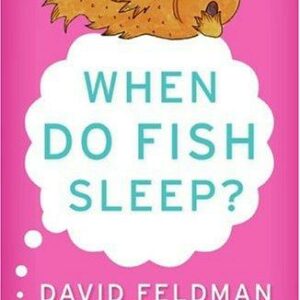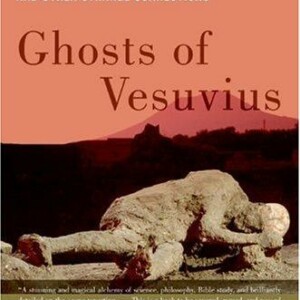Ten Plays by Euripides
$7.95
| Title | Range | Discount |
|---|---|---|
| Trade Discount | 5 + | 25% |
- Description
- Additional information
Description
The first playwright of democracy, Euripides wrote with enduring insight and biting satire about social and political problems of Athenian life. In contrast to his contemporaries, he brought an exciting–and, to the Greeks, a stunning–realism to the "pure and noble form" of tragedy. For the first time in history, heroes and heroines on the stage were not idealized: as Sophocles himself said, Euripides shows people not as they ought to be, but as they actually are.Little is known of the life of Euripides. He was born about 485 B.C. on the island of Salamis and may have begun a career as a painter before writing in the drama competitions in 455 B.C. During his lifetime his plays were often produced, but he won the Athenian drama prize only four times. He died in 406 B.C.
Euripides was a prolific writer, the author of some eighty-eight or more plays, of which nineteen have survived under his name. He was criticized by the conservatives of his time for introducing shabby heroes and immoral women into his plays, a practice that they considered degrading to the noble form of tragedy. However, audiences to whom his predecessors were cold and remote found Euripides direct and appealing.
Euripides became immensely popular after he died and his influence altered drama forever. Considered by George Bernard Shaw to be the greatest of the Greek dramatists, Euripides is now regarded by many as the originator of the dramatic sensibility that developed into what we call "modern" European drama.ALCESTIS
CHARACTERS
Apollo
Death
Chorus, elders of Pherae
Handmaid
Alcestis, wife of Admetus
Admetus, King of Pherae
Eumelus, son of Admetus and Alcestis
Heracles
Pheres, father of Admetus
Butler
Guards, attendants, mourners
The scene represents the palace of Admetus at Pherae.
Alcestis was acted in 438 b.c.
[Enter Apollo, gorgeously dressed, with bow and quiver.]
APOLLO. House of Admetus, in which I condescended to put up with a slave’s table, I a god! Zeus was the cause: he killed my son Asclepius by hurling the lightning into his breast, and I in my anger slew the Cyclopes who fashion Zeus’ fire; for this has the father constrained me to do bond service to a mortal man.
I came to this land and tended cattle for my host, and I preserved his house to this day. In the son of Pheres I found a pious man, as I myself am pious, and I rescued him from death by tricking the Fates. These deities agreed that Admetus could escape Hades for the present by offering in exchange another body to the spirits below. He canvassed and solicited all his friends, his aged father and the mother who bore him, but he found no one except his wife willing for his sake to die and to forgo the light of day.
His wife is now moving about the house supported in his arms and is gasping her last, for upon this day it is fated for her to die and quit this life. I am leaving the friendly shelter of these halls lest the pollution of death come upon me within doors. Already I perceive Death hard by, the priest of the dead who is ready to lead her down to the house of Hades. Punctually does he arrive; he has been watching for this day upon which she must die.
[Enter Death, in a fearful and gloomy dress, with a bare sword.]
DEATH. Ha! Ha! What are you up to outside the palace, why are you prowling about here, Phoebus? Are you at your tricks again? Appropriating the dues of the powers below and ending our perquisites? Was it not enough for you to prevent the death of Admetus by beguiling the Fates with a sly trick? Now you have armed your hand with a bow to keep guard also over this woman, this daughter of Pelias, who saved her husband by undertaking to die for him herself.
APOLLO. Never fear. Justice and fair arguments are on my side.
DEATH. What need of a bow if justice is on your side?
APOLLO. It is my habit to wear it always.
DEATH. Yes, and to give illegal aid to this house.
APOLLO. I am weighed down by the predicament of a man that is my friend.
DEATH. Will you deprive me of this second body too?
APOLLO. I did not take that other from you by force.
DEATH. Why then is he upon the earth, and not below ground?
APOLLO. Because he gave his wife as ransom, for whom you are now come.
DEATH. Yes, and I shall drag her below, underneath the earth.
APOLLO. Take her and go; I doubt if I can persuade you—-
DEATH. To kill whom I must? Why, that is my office.
APOLLO. Not so, but to cast death upon those that are ripe for it.
DEATH. I understand your logic–and your zeal!
APOLLO. Is there any way, then, that Alcestis may reach old age?
DEATH. There is not. Consider that I too take pleasure in my prerogatives.
APOLLO. You would not be getting more than a single life.
DEATH. When the young die I gain the greater prize.
APOLLO. But if she die old she will be buried magnificently.
DEATH. Phoebus! You lay down your law in favor of the rich.
APOLLO. How do you mean? You a sophist too? Who would have thought it?
DEATH. Those who could, would buy the privilege of dying old.
APOLLO. Then you will not grant me this favor?
DEATH. No. You know my ways.
APOLLO. Yes, hateful to men and loathed by the gods.
DEATH. You cannot have everything which is not your due.
APOLLO. Yet will you forbear, exceedingly cruel though you are. A man will come to the house of Pheres, sent by Eurystheus to fetch a team of horses from the wintry regions of Thrace. He will be entertained in the house of Admetus, and will wrest this woman from you by force. Nor will you have any thanks from me; you will do this thing notwithstanding, and you will have my hate.
[Exit Apollo.]
DEATH. Talk on; it will do you no good. This woman shall descend to the house of Hades. I am advancing upon her to initiate my rites with the sword. Devoted to the nether gods is the head whose hair this weapon consecrates.
[Exit Death into the palace. Enter Chorus.]
CHORUS [the mark at the beginning of a line indicates a change of speaker].–What means this quiet before the halls?
–Why is the house of Admetus silent?
–No friend is near, none who might tell us whether we must mourn our queen as dead, or whether Pelias’ child yet lives and looks upon this light, Alcestis, who has proven to us and to everyone that she is the noblest of wives.
–Does anyone hear a moaning, or a beating of hands in the house, or a wailing as if all were over?
–And yet none of the domestics stands before the house. Show thyself, O Healer, amid the billows of disaster!
–I’m sure they would not be silent if she were dead.
–She is already a corpse.
–At any rate, she is not yet gone forth from the house.
–How do you know? I am not sure. What gives you hope?
–How would Admetus have denied a cortege to his noble wife?
–I do not see before the doors the pitcher of fountain water which is customary at the doors of the departed.
–Nor is there shorn hair in the vestibule such as falls in sorrow for the dead, nor the noise of the hands of young women.
–Yet this is the fated day–
–What is this you say?
–On which she is doomed to go below the earth.
–You have touched my soul, you have touched my heart.
–When the noble are afflicted, loyalty tried and true must grieve.
–No spot on earth is there, neither in Lycia nor in the waterless seats of Ammon, where a pilgrim’s voyage might redeem this hapless life. Sheer fate is nigh, and I know not to whom I should go of them that sacrifice sheep at the altars of the gods.
–If only Phoebus’ son (Asclepius) were alive and looked upon this light, then could she leave the shrouded abode and the gates of Hades and come to us; for he used to quicken even the dead before the Zeus-hurled bolt of lightning fire destroyed him. But now what hope of her life can I yet hold?
–All the rites have been accomplished by the king, upon the altars of all the gods do blood-dripping sacrifices abound. There is no remedy for these evils.
[Enter Handmaid, weeping.]
LEADER. But here comes one of the attendants, all in tears. What fortune shall I hear? [To Handmaid] To grieve if anything befalls our masters is pardonable. But we should like to know whether the lady is still in life or whether she has perished.
HANDMAID. You may call her both living and dead.
LEADER. How can the same person be dead and still see the light?
HANDMAID. She is already drooping and breathing her last.
LEADER. Ah, unfortunate! Such a man, to lose such a wife!
HANDMAID. My master does not realize this; he has not yet felt it.
LEADER. Is there no longer hope of saving her life?
HANDMAID. No, for this is the day, and destiny is strong.
LEADER. Is everything requisite being done for her?
HANDMAID. The adornments with which her husband will bury her are ready.
LEADER. Let her know that she dies glorious, the best woman under the sun by far.
HANDMAID. Certainly the best. Who would gainsay it? What must the woman be who would surpass her? How could any woman demonstrate greater regard for her husband than by consenting to die for him? But this all the city knows. You will marvel when you hear what she did within the house. When she realized that the destined day had come she washed her white body with river water, and chose garments and ornaments from her cedar chests and adorned herself becomingly, and then she stood before the hearth and prayed: "Lady, I am going below earth, and for the last time I kneel before you. I beseech you, care for my orphan children: join to my son a loving wife, to my daughter a noble husband. Let not my children perish untimely like their mother, but with good fortune let them round out a happy life in their own country."
All the altars in the house of Admetus did she approach, and she crowned them and offered prayer, plucking sprigs of myrtle from the branches; she uttered no cry or groan, and the approaching evil did not alter the comely appearance of her person. Then she flew into her chamber and up to her bed. There she wept and spoke as follows: "O couch where I loosed my maiden zone by the hand of him for whom I die, farewell. I do not hate you. You have destroyed me alone. It is because I dread to betray you and my husband that I die. Some other woman will possess you, no more chaste, perhaps more fortunate."
She fell upon it and kissed it, and all the bedding was moistened with the tears that suffused her eyes. And when she has had her fill of weeping she flings herself forth from the bed and departs downcast. Often she makes to quit the chamber, and often she turns back, and again throws herself upon the bed.
Her children were hanging from their mother’s dress and weeping, and she took them into her arms and fondled first one and then the other, as being on the point of death. All the servants throughout the house wept in pity for their mistress. But she extended her right hand to each one, and there was none so humble but that she addressed him and heard his reply.
Such are Admetus’ evils within the house. If he had died he would have perished, but now that he has escaped he has such anguish as he will never forget.
LEADER. Admetus is surely groaning at this trouble, at having to lose his noble wife?
HANDMAID. Yes, he holds his dear wife in his arms and weeps, and beseeches her not to forsake him, asking what is impossible; for she is wasting away and sinking in her malady. Feeble as she is, a sad burden in his hand, still with the little breath that she has she desires to look upon the rays of the sun, for she never again will see it. This is the last time.
But I shall go and announce your presence. Not everyone is so well disposed to his lords as to stand by them in their troubles. But you have been friendly to my master from of old.
[Exit Handmaid.]
CHORUS. O Zeus can there be any deliverance at all from these evils, any solution for the fortune which hovers over our lords?
–Ah me! Ah me! Is there any? Or shall I shear my hair and clothe me now in a habit of black raiment?
–Plain it is, my friends, too plain. Yet let us pray to the gods, for very great is their power.
–O Lord Healer, contrive some device for Admetus’ evils!
–Grant it, yea grant it! Aforetime did you contrive it: be now too a deliverer from death; hold back bloody Hades!
–Alas! How you have suffered, O son of Pheres, bereft of your wife!
–Alack! This is enough to provoke self slaughter, more than enough to put one’s neck in a hanging noose.
–Not a dear wife, nay, but the dearest wife will you see dead this day.
–Look, look! She comes forth from the house, and her husband with her.
–Cry out, O land of Pheres, and groan, for the noblest of women; disease is wasting her down to Hades below earth.
LEADER. Never shall I declare that marriage brings more happiness than sorrow. My evidence is past experience and the observation of the present misfortunes of the king, who is bereft of his excellent wife and will henceforward live a life unlivable.
[The palace doors open; enter Alcestis supported in the arms of Admetus, Eumelus and his sister clinging to their mother, and servants who proceed to arrange a couch.]
ALCESTIS. Sun and light of day, heavenly eddies of fleeting clouds—-
ADMETUS. Look upon you and me, two unhappy creatures who have done nothing to the gods for which you should die.
ALCESTIS. Earth and that high-roofed palace in my native Iolcus, with its bridal bed!
ADMETUS. Rouse yourself, poor woman, do not desert me. Pray to the gods who are powerful to pity.
ALCESTIS. I see the two-oared boat, I see it upon the lake. The ferryman of the dead has his hand upon the pole, Charon is already calling me: "Why do you linger? Hasten! You are delaying us." So is he hurrying me, brusquely.
ADMETUS. Alas! This is a bitter voyage for me that you speak of. Ah, unhappy! What sufferings are ours!
ALCESTIS. He is dragging me, someone is dragging me–do you not see?–to the court of the dead. Under his dark brows he is gazing at me; he has wings. It is Hades. What will you do? Let go of me! What a road, what a luckless road I am entering upon!
ADMETUS. A pitiful road for your friends, but most of all for me and the children who share this sorrow.
ALCESTIS. Let me go, let me go now, lay me down: my feet have no strength. Hades is near. Dark night is creeping over my eyes. Children, my children, your mother is dying, dying. Farewell, my children, and look long upon the light.
ADMETUS. Ah me! It is a bitter word I hear, worse than any death to me. For heaven’s sake, do not have the heart to abandon me, for the sake of these children whom you are making orphans, be brave! If you should die I would no longer exist: I am in your power, to live or not, for your love I adore.
ALCESTIS. Admetus, you see how it is with me. I want to declare my wishes before I die. I have honored you, and at the price of my life I have caused you to look upon this light. For your sake I die, though I could have survived and married any Thessalian I wished and lived in a house happy with kingship. But I was not willing to live separated from you, with my children orphaned, and I did not begrudge my youth, which I possessed and enjoyed. And yet he that begot you and she that bore you betrayed you, though they had come to a time of life fitting for death, fitting to save their son and die glorious. You were their only child, and they had no hope of getting other children if you were dead. Then I should have lived, and you too, the rest of our time, and you would not be groaning at the loss of your wife, and would not have to bring up your children motherless. But some god has caused these things to work out this way. So be it. But do you remember to render me gratitude for these things. I do not seek an equal return. That is impossible, for nothing is so precious as life. What I ask is only fair, as you yourself will admit.US
Additional information
| Weight | 8.4 oz |
|---|---|
| Dimensions | 0.9000 × 4.1600 × 6.6500 in |
| Imprint | |
| Format | |
| ISBN-13 | |
| ISBN-10 | |
| Author | |
| Audience | |
| BISAC | |
| Subjects | monologue books, screenplay, monologues, stage makeup, broadway posters, broadway musical gifts, playbill, musical theater gifts, musical theatre gifts, musical gifts, broadway musicals, screenplays, play scripts, play scripts for theater, euripedes, greek tragedies, greek plays, greek tragedy, theater gifts for actors, DRA004000, musicals, classic, creativity, drama, classics, theater, play, Theater books, musical, theatre, greek, plays, broadway, classic literature, PER011000, broadway gifts, theater gifts, theatre gifts, classic books, broadway books |











